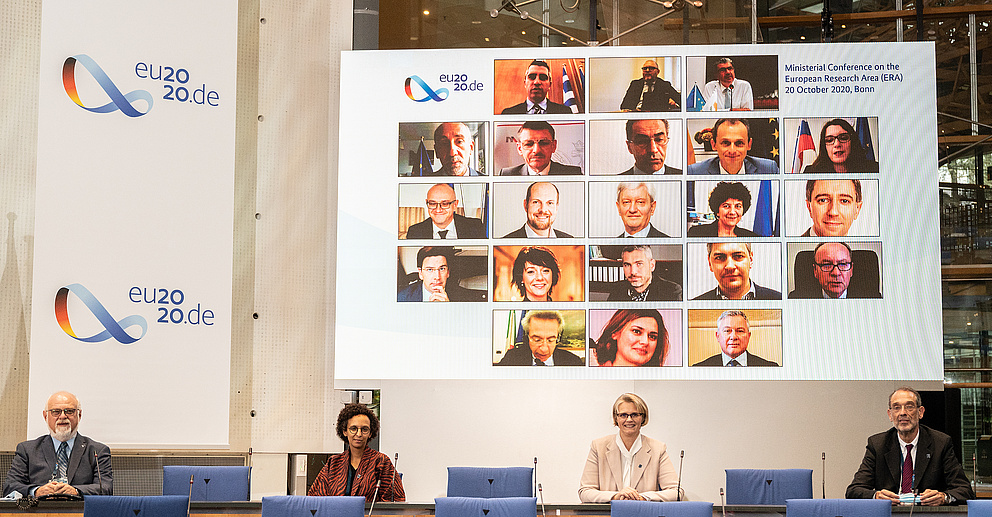
The Alliance of Science Organisations in Germany welcomes the “Bonn Declaration on Freedom of Scientific Research” adopted today as a noteworthy and important step taken by the Ministerial Conference on the European Research Area. The Research Ministers of the European Union met in Bonn on the occasion of the German EU Council Presidency.
“In adopting this declaration, policymakers are fortifying and supporting the efforts of scientific organisations in the area of international academic freedom,” said Prof Dr Peter-André Alt, President of the German Rectors’ Conference (HRK), which is currently heading the Alliance. “We need this kind of clear political message about the freedom of scientific research as a fundamental value of the European Union and as a principle of international research cooperation. Mobility and free exchange of ideas create the foundations for prosperous academia.”
The agreement regarding the establishment of a monitoring system on academic freedom is extremely important as a concrete commitment: “We will take those who are responsible at their word and, if necessary, insist on consequences. Academic freedom, our greatest asset, should not be restricted for political reasons.”
The signatories to the Bonn Declaration undertake to protect the critical discourse and condemn violations of freedom of scientific research. This entails the protection of researchers by government institutions and safeguarding against government intervention in the freedom of research. HRK President Alt: “In keeping with this objective, the declaration must be followed up with action by policymakers. Defending academic freedom also involves countering factual distortion motivated by populism. Academia sees communicating academic procedures and results clearly and as comprehensibly as possible and entering into discussions about such as its responsibility. It regards this as an important contribution to anchoring awareness of the importance of independent research in society.”
In many states academic freedom is in acute danger, with academics being restricted in their work, persecuted as opponents of the regime or even detained. Germany’s academic community has committed to continue and intensify efforts within its organisations to provide protection and prospects for endangered academics from abroad and to actively participate in programmes and networks such as Academy in Exile or Scholars at Risk. The Alliance of Science Organisations in Germany approved 10 theses on academic freedom (available only in German) as a voluntary commitment to mark the 70th anniversary of the German Basic Law.
The Alliance of Science Organisations in Germany is a union of the most important science and research organisations in Germany. It regularly issues statements regarding important science policy issues. The German Rectors’ Conference is a member of the Alliance and is chair of the organisation for 2020. The Alliance’s other members are the Alexander von Humboldt Foundation, the German Academic Exchange Service, the Deutsche Forschungsgemeinschaft (DFG), the Fraunhofer-Gesellschaft, the Helmholtz Association, the Leibniz Association, the Max Planck Society, the German National Academy of Sciences Leopoldina, and the German Council of Science and Humanities.
Media contact:
Susanne Schilden
Head of Communication | Press Speaker
German Rectors’ Conference
Tel.: 0228/887-152
schilden@hrk.de
(Press release 22/2020)
Every year, the Alexander von Humboldt Foundation enables more than 2,000 researchers from all over the world to spend time conducting research in Germany. The Foundation maintains an interdisciplinary network of well over 30,000 Humboldtians in more than 140 countries around the world – including 63 Nobel Prize winners.

